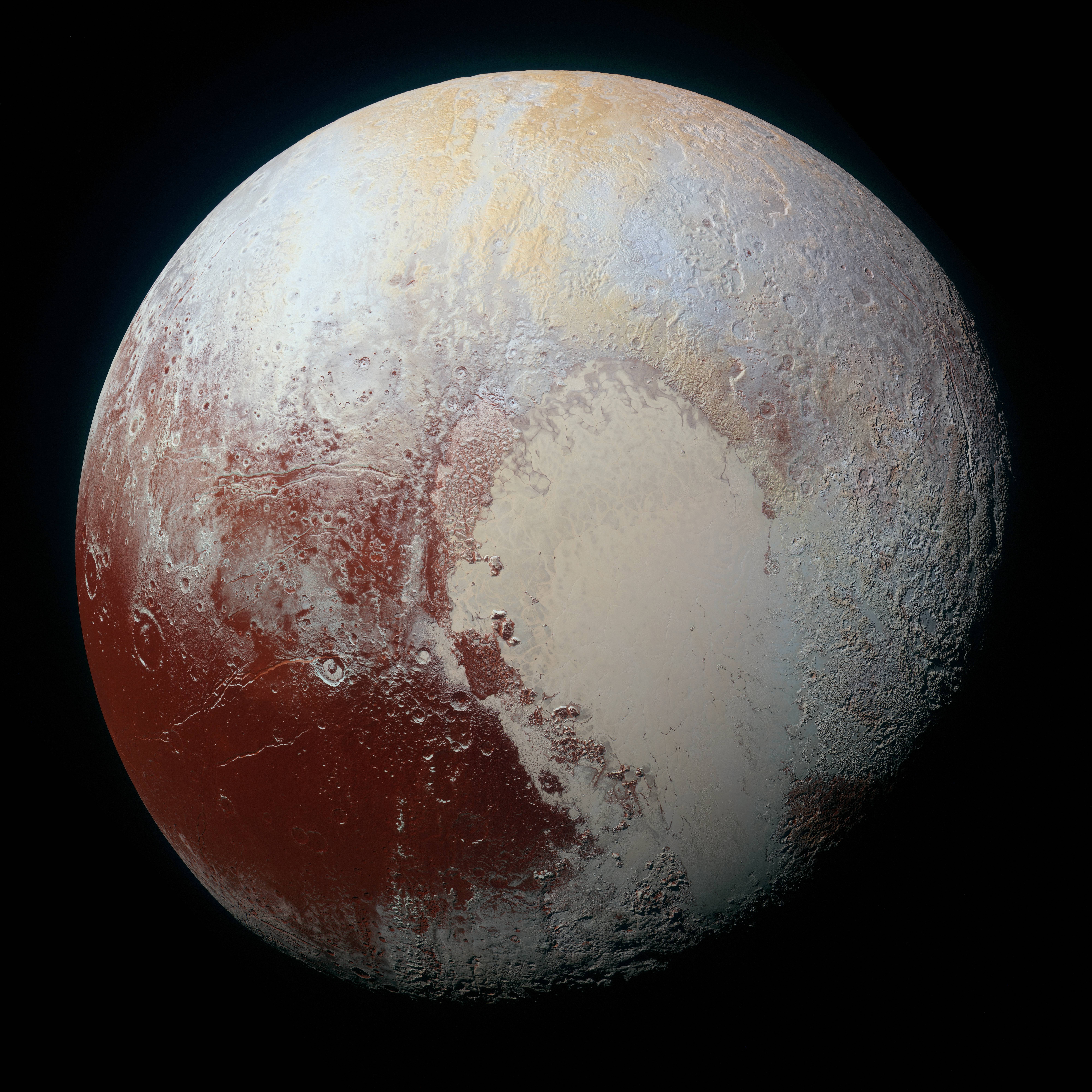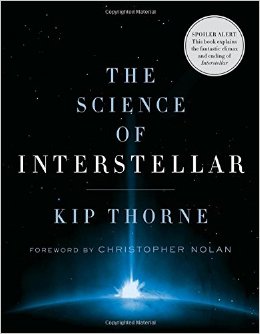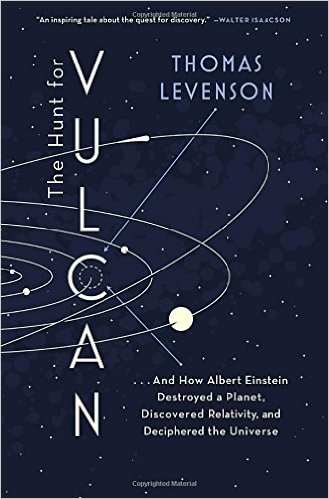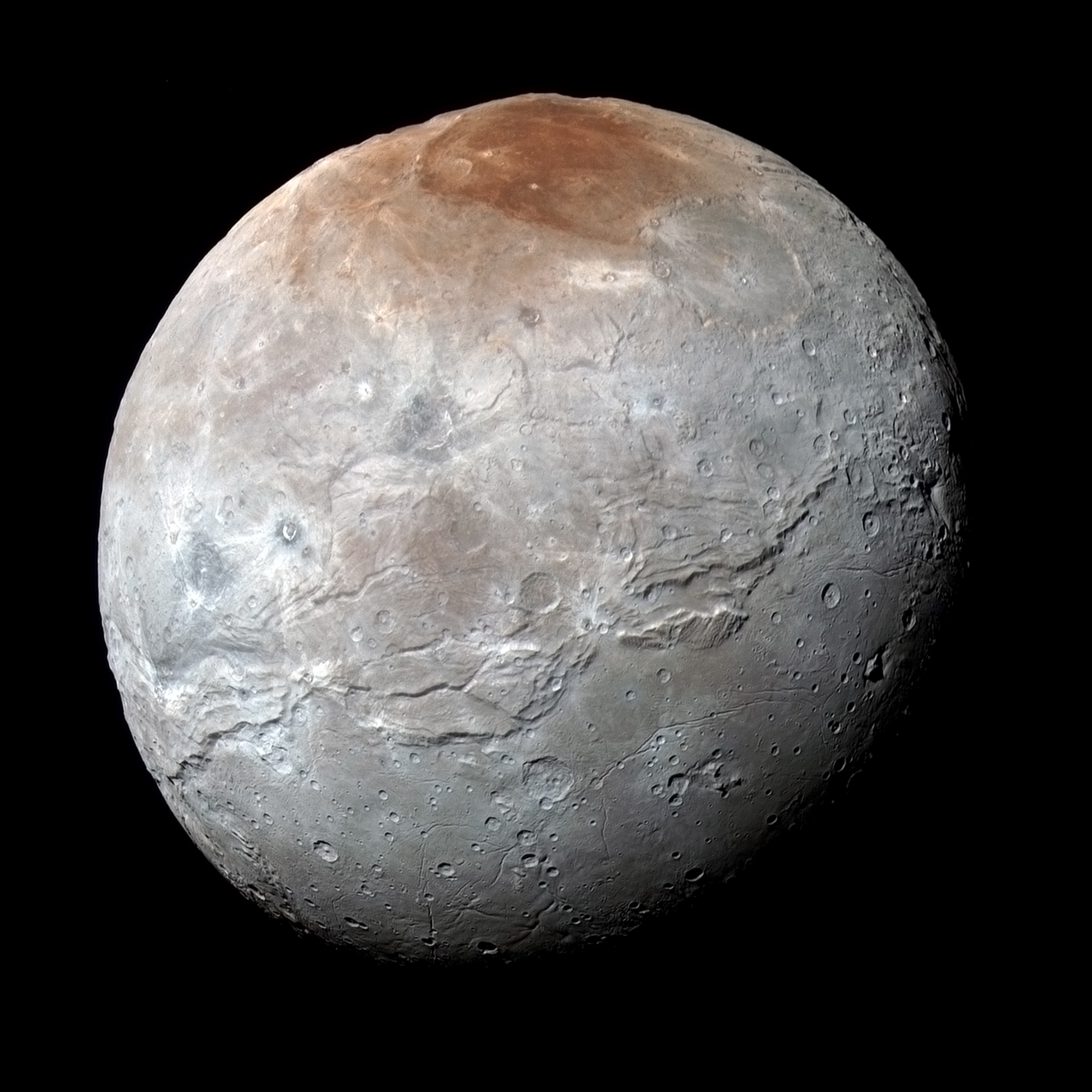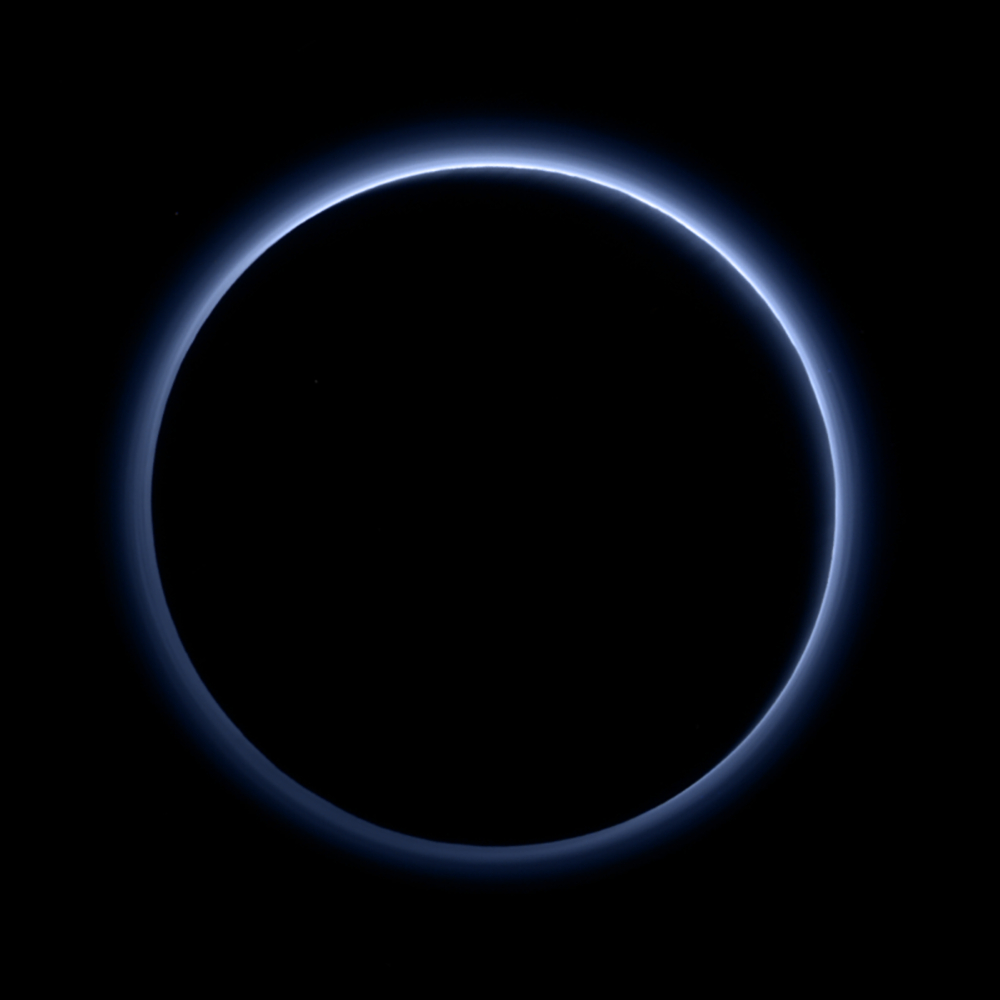That's gorgeous Sham. I know the data is only really just starting to come through but I was absolutely fascinated just by the initial observations made during the fly by - the spectacular and enormous mountain range, made out of ice as hard as steel, grabbed my imagination straight away, regardless of any immediate lack of a geological explanation the mental image alone, was, well, fucking mental from an aesthetic desirability if nothing else.
But even that early stage, which while light on science, provided these pictures - and cheers for posting the Charon image as they really both have to be seen in such exquisite detail to provide at least some context to 2 really fantastic observations that were made by the spacecraft on the approach to and arrival at the system on its way in to perform the fly by -
1: the fact that Charon was not a satellite of Pluto but an entirely separate dwarf planet in it's own right, as it became clear during the approach by
New Horizons that the barycentre of both bodies lay well above the surface of Pluto (the calculations for which can be found here:
http://mathscinotes.com/2015/06/barycenter-of-pluto-and-charon/, which should eventually define them as a double system as soon as the IAU gets around to classifying the relatively new concept of 'dwarf planets' as a way as such planetoids behaving as such.
2: The fascinating red material that is so visible on both Pluto and Charon (which has a good chance of being some sort of molecular organic slush ) was quickly suggested as being exchanged from the surface of Pluto to Charon by some mechanism (or vice versa as your links Sham, which I will be attending to within the next 6 hours, will be the first serious material I have looked at regarding the flight since the encounter and will hopefully shed some light on this amazing process), across the near 20,000 km of raw, bona - fide
space.
To finish off the Pluto / Charon gallery here is one of the beautiful images
New Horizons captured as it left the system, with the planets atmosphere clearly visible through the backlight.


